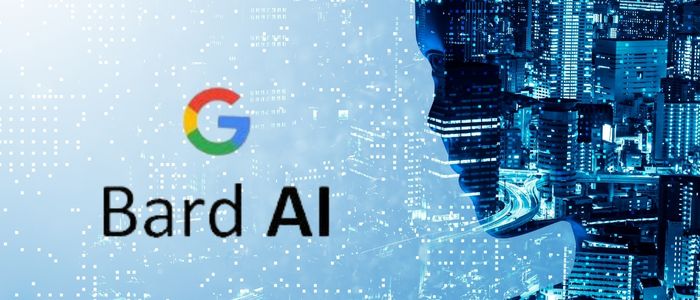Artificial intelligence is the technology that Google has been working very hard on to date. Whether it's helping doctors detect diseases earlier or allowing people to access information in their own language, AI is helping people, businesses and communities unlock their potential. It also opens up new possibilities that could significantly improve the lives of billions. That's why Google refocused the company on AI six years ago - and why, to this day, they still see it as the most important way their mission can be fulfilled. Namely, to organize the world's information and make it universally accessible and useful.

Since then, the US company has continued to make investments in AI across the board, and Google AI and DeepMind are advancing the latest state of the art. Today, the scale of the largest AI computations doubles every six months, far surpassing Moore's Law. At the same time, advanced generative AI and big language models are capturing the imagination of people around the world. In fact, Google's Transformer research project and their 2017 field-defining paper, as well as their important advances in diffusion models, are now at the heart of many of the generative AI applications you're starting to see today.
Introducing Bard
Google is extremely excited about the opportunity to work on these technologies while turning deep research and discovery into products that truly help people. This is the journey the company has been on with great language models. Two years ago they unveiled the next generation of language and conversation capabilities powered by our Language Model for Dialogue Applications (or LaMDA for short).

The corporation today is working on an experimental conversational AI service powered by LaMDA they call Bard. And today they're taking it one step further by "releasing" it to trusted testers before making it more widely available to the public in the coming weeks.
Bard seeks to combine the breadth of the world's knowledge with the power, intelligence and creativity of large language models that the software company possesses. It draws information from the web to provide fresh, high-quality answers. Bard can be an outlet for creativity and a launching pad for curiosity, helping to explain new discoveries from NASA's James Webb Space Telescope to a 9-year-old. Or learn about the best strikers in football right now and then take similar drills to theirs to build your skills.
Google will initially "release" it with a lightweight model version of LaMDA. This much smaller model requires significantly less computing power. This allows the company to scale to as many users as possible, allowing for more feedback. They will combine external feedback with their own internal testing to make sure Bard's responses meet the high bar for quality, safety, and validity of real-world information. Google says they are excited about this phase of testing. The reason is that it will help them continue to learn and improve the quality and speed of Bard.
Google has a long history of using AI to improve its "Search" platform for billions of people. BERT, one of their first Transformer models, was revolutionary in understanding the intricacies of human language. Two years ago, Internet Corporation introduced MUM, which is 1000 times more powerful than BERT and has next-level and multilingual information understanding. It can select key moments in videos and provide critical information, including crisis support in multiple languages.
Now the latest AI technologies - such as LaMDA, PaLM, Imagen and MusicLM - are building on this, creating entirely new ways to engage with information, from language and images to video and audio. Google is working to incorporate these latest AI improvements into its products, starting with Search.

One of the most exciting possibilities is how artificial intelligence can deepen the understanding of information and turn it into useful knowledge and make it more efficient - making it easier for people to get to the heart of what they're looking for and get things done. When people think of Google, they often think to look up quick factual answers, such as "how many keys does a piano have?" But increasingly, people are turning to Google for deeper insights and understanding - for example, "is it easier to learn piano or guitar, and how many exercises are needed for each?" Learning about a topic like this can take a lot of effort to figure out what you really need to know, and people often want to explore a diverse set of opinions or perspectives.
AI can be useful in these moments by synthesizing insights about questions for which there is no one right answer. You'll soon see AI-powered features in Search that distill complex information and multiple perspectives into easy-to-digest formats so you can quickly understand the big picture and learn more from the web. Whether it's searching for additional perspectives, like blogs from people who play both piano and guitar. Or going deeper into a related topic, taking steps to get started as a beginner. These new AI features will soon start rolling out to Google Search.
Helping developers innovate with AI
In addition to their own products, the company believes it is important to make it easy for others to easily, safely and scalably benefit from these advances by building on their best models. Next month, they will begin engaging individual developers, creators, and enterprises so they can test their own Generative Language API, initially powered by LaMDA with a set of patterns to follow. Over time, they intend to create a set of tools and APIs that will make it easier for others to create more innovative applications with AI. Having the necessary computing power to build reliable and trustworthy AI systems is also critical for startups, and Google is excited to help scale these efforts through our Google Cloud partnerships with Cohere, C3.ai, and Anthropic, which was just announced.. Stay tuned for more developer details coming soon.

Bold and responsible
It is crucial to provide the world with experiences rooted in these models in a bold and responsible way. That's why Google is committed to developing AI responsibly. In 2018, Google was one of the first companies to publish a set of AI principles. Now, 5 years later, they continue to provide education and resources for their researchers, partnering with governments and external organizations to develop standards and best practices. And also work with communities and experts to make AI safe and useful.
Whether applying AI to radically transform their own products or providing these powerful tools to others, they will continue to be bold with innovation and responsible in their approach. And this is just the beginning - there's more to come in all of these areas in the weeks and months ahead.
We at Grow Easy Digital Agency strive to provide the most up-to-date information on our blog. This will make sure that both we and our site users stay "up to date" with Google's fashion.
Source: https://blog.google/technology/ai/bard-google-ai-search-updates/
